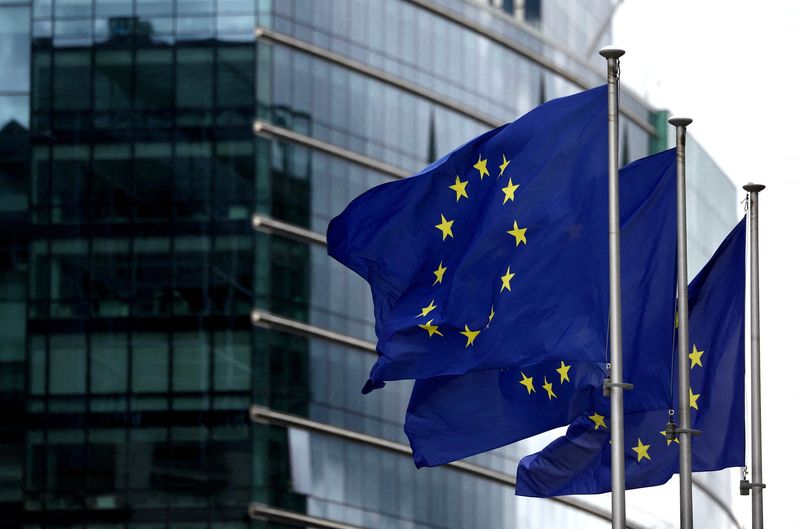By Huw Jones
LONDON (Reuters) - A panel of European Union lawmakers on Tuesday voted in favour of easing the bloc's securities rules to encourage more company listings and compete better with capital markets in New York and post-Brexit London.
Companies in the EU typically turn to banks for loans to expand, and the reforms are aimed at diversifying corporate funding.
The European Parliament's economic affairs committee voted through a series of reforms, known as the Listing Act, that includes giving investment firms more flexibility in how they bill for company research.
It rolls back the so-called "unbundling" rule which requires strict itemisation of research costs from trading costs, blamed by critics for leading to less research on smaller firms.
"The Listing Act amounts to a programme that aims to make it more attractive and less burdensome for European SMEs and other firms to raise investment funds by issuing shares," said Alfred Sant, the centre left lawmaker who brokered the changes to the draft law proposed last year by the European Commission.
"It does this among others, by lightening the complications attached to listing, making observance of regulatory prescriptions easier to follow and allowing the issuance of multiple-vote share structures."
Lawmakers backed reduced content, a maximum page limit and using a standardised format for growth company prospectuses, with an option to dispense with a prospectus entirely if less than 5 million euros ($5.32 million) in issuance is being offered.
The package also includes changes to accommodate founders of companies who want to maintain control via multiple voting rights after listing. It also adds safeguards to protect shareholders that do not hold multiple-vote shares.
Multiple-voting structures are a key part of New York's attraction as a listings destination, particularly for tech companies.
Britain is rewriting its securities rules which it inherited when it was a member of the EU and its planned changes are similar to those approved by EU lawmakers on Tuesday.

The European Parliament and EU states have joint say on the EU rules and will now start negotiations on a final text that becomes law.
($1 = 0.9405 euros)